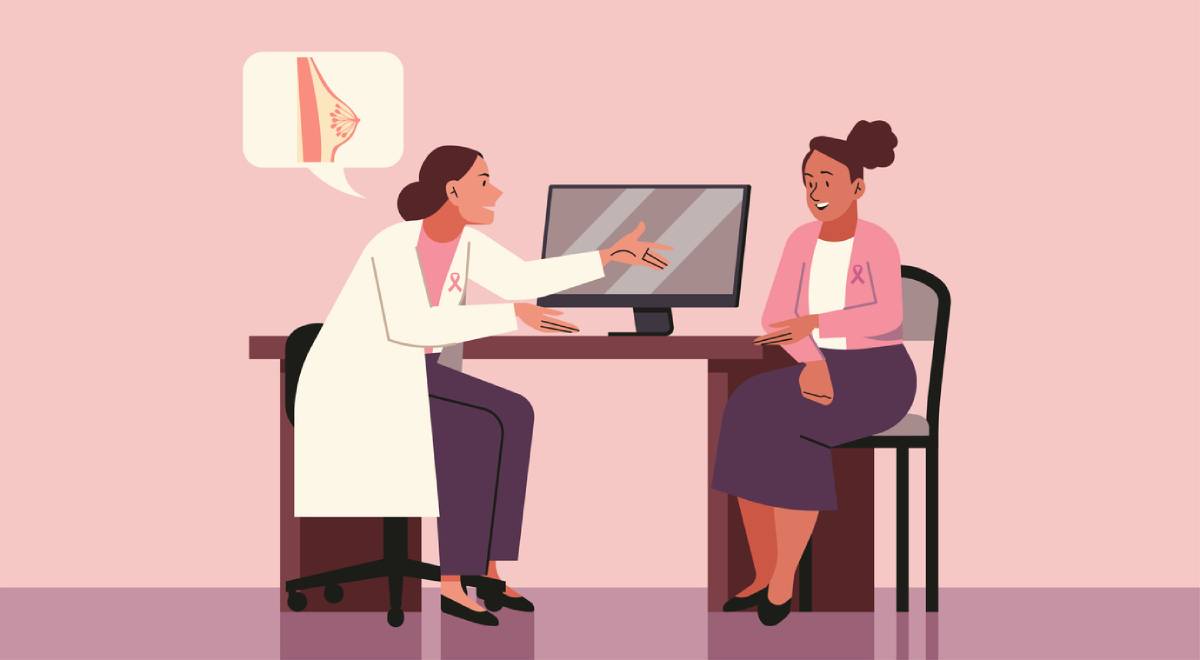Taking charge of one’s health is crucial to one’s overall well-being. As a woman, one of the important steps you can take to be in control of your health and well-being is to regularly consult with your breast doctor and to have regular breast screenings once you have reached the age of 40. Consider availing of breast imaging services, which can help in the early detection and treatment of breast cancer. Whether you have concerns about your breast health or you just want to visit your doctor for a routine checkup, it is important to ask the right questions. Here are some questions to ask your doctor about breast cancer, which can empower you to make informed decisions.
Questions to Ask Your Doctor About Breast Cancer
How high is my risk of developing breast cancer?
Every woman’s risk of developing breast cancer is different from that of another woman. There are different risk factors involved, and understanding your own individual risk factors is crucial to proactive breast health management. Your genetic predisposition, lifestyle, health history, and that of your family will help your doctor assess your risk and aid him in getting an insight into your risk level.
What screening tests are recommended for me?
There are different screening tests available for you to choose from. Mammograms, breast ultrasounds, and breast MRIs can detect breast cancer at the earliest stages. Ask your doctor to recommend the best one for you, given your age, risk factors, and medical history. Avail of the services of highly skilled and experienced mammography solutions specialists for screening and early detection. Early diagnosis will increase your chances of surviving.
How often should breast screening be?
Because not everyone has the same risk factors, the frequency of screening is not uniform to all. It will depend on your own individual risk factors and the general guidelines from reputable medical organizations. You may request your doctor to give you a customized or personalized recommendation based on your own individual situation and history.
What are the signs and symptoms of breast cancer?
Ask your doctor for signs and symptoms you should watch out for, such as nipple discharge, lumps, thickening of breast tissue, changes in shape or size, and skin changes on the breasts.
Knowing what to look out for will help you detect any abnormalities early and help in the early detection of cancer.
How can I lower my risk of developing it?
While some risks of developing breast cancer, like family history, genetic mutations, and age, are beyond your control, certain risks, like weight, alcohol intake, and level of physical activity, can be changed through lifestyle modification. Talk to your doctor about strategies you can implement to modify your lifestyle.
What treatment options are available to me?
In case of an unfortunate breast cancer diagnosis, it is essential to understand the various treatment options available to your specific situation. Surgery, chemotherapy, radiation therapy, and hormone therapy are used to treat breast cancer. Ask your doctor about the pros and cons of each treatment modality and determine with your doctor which one is the most suitable for you.
What are the potential side effects of treatment?
Inquire about the potential side effects of the recommended treatment. List them down, or ask your doctor to give you an outline. Ask about the strategies for managing these side effects.
How many patients with this type of cancer have you treated?
Knowing that your doctor has successfully treated other patients with the same type of cancer will make you feel more at peace. On the other hand, if your doctor does not have enough experience with the same type of cancer, you can decide if you want to look for another, more experienced doctor.
What is the effect on my fertility?
If you are still of childbearing age and would like to get pregnant in the future, it is important to understand how the treatment can affect your fertility. Ask your doctor to discuss how you can preserve your fertility before you start your treatment.
How soon should treatment start?
Knowing when your treatment should start will help you make the necessary arrangements, especially with treatment funds.
What are the dos and don’ts during treatment?
Knowing your limitations and what activities you can still do while undergoing treatment is something you will want to know. Will you still be able to work? Or are you supposed to stay home throughout the treatment period?
Can I prevent the recurrence of the disease after treatment?
It is important to understand that even after successful treatment, recurrence is possible. You may ask about the level of risk of recurrence, its signs and symptoms, and available tests that can monitor recurrence.
What support services are available?
A breast cancer diagnosis is both overwhelming and distressing. It can even be depressing. The emotional support from support groups, counseling programs, and financial aid will make a big difference as you journey toward survivorship.
What is the prognosis?
One of the most difficult questions to ask is the prognosis of a dreaded disease like cancer. However, it is a question you know you want an answer to. Aside from that, the answer can also provide you with a clear understanding of your cancer’s outlook and help you make informed decisions that can affect your health and plans for the future.
Early Detection Leads to Higher Survival Rate
Remember that if cancer is detected early, the rate of survival increases. In addition, breast cancer is one of the easiest cancers to treat. So do not let anxiety stop you from detecting cancer at its early stage. See your doctor regularly, especially if you are 40 years or older. Have your breasts checked and screened. Schedule a mammography today.

